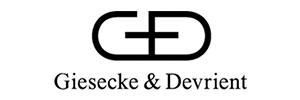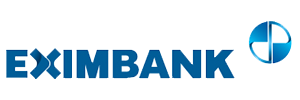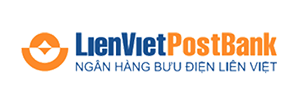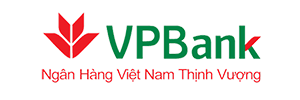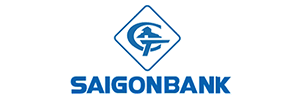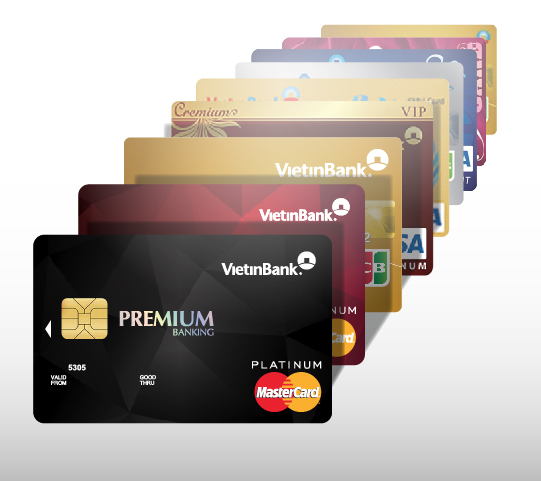
According to the Vietnam Banking Association, currently, Vietnamese banks are paying for Visa and MasterCard 3-4 fees per transaction. The situation of “superposition charge” partly affects the card business of banks, hindering the process of promoting non-cash payment.
According to statistics, currently Vietnamese banks are paying for Visa, MasterCard 3-4 charges per transaction. The situation of “superposition charge” partly affects the card business of banks, hindering the process of promoting non-cash payment.
Recently, the Vietnam Association of Banks has sent a document to Visa and MasterCard – two international card organizations with a large market share of the request for exemption and reduction of fees to support banks in the Vietnamese market.
Facility to reduce fees for customers
In fact, the complicated development of COVID-19 has greatly affected the business activities of banks in Vietnam, including international credit card business. For the issuance segment, sales of cards of the group of major banks has continuously decreased since the beginning of the year until now. As of March 2020, domestic card usage has decreased by 21% and card usage overseas by 28% compared to the same period in 2019.
For the payment segment, card payment sales plummeted over the months, especially in the first week of April 2020. The average payment turnover decreased by 78% over the same period and by 93% compared to March 2020.
Talking to the News reporter, VietinBank representative shared: Before the complicated situation of the COVID-19 epidemic from the beginning of the year until now, in order to support customers, VietinBank has implemented many policies on card fee exemption and reduction. regarding payment activities. Specifically, VietinBank has cooperated with Napas to waive and reduce fees for transfer transactions on the iPay system. However, due to the impact of the COVID-19 epidemic, especially in the time of social isolation, the shopping and spending needs of customers were limited, so the sales volume via bank cards dropped sharply. .
Despite the sharp decline in card issuance and payment in Vietnam market, Visa and MasterCard are still applying a complex fee collection mechanism, collecting too many fees for a single transaction.
According to information from the Vietnam Banking Association, for example, with a card transaction, Visa and MasterCard may collect fees such as licensing fees, brand fees, expenses in / outside Vietnam, service fee … Due to the high fee, the payment banks must collect from the corresponding accepting card unit.
When Visa, MasterCard international credit cardholders use the card for payment, the card accepting unit must pay the corresponding fee of about 2 – 2.5% of the transaction value to the paying bank. And it is the customers who are influenced by the chain of high fees from international card organizations.
Prior to that fact, the member banks of the Vietnam Bank Association proposed that Visa and MasterCard should have solutions and policies to support fee reduction for Vietnamese banks (at least applied for 12 months). In the long term, it is necessary to consider appropriate fee policies to support the development of Vietnam’s card market in a more stable and efficient manner.
Specifically, commercial banks proposed a minimum of 50% reduction of transaction processing fees for both payment banks and issuing banks. At the same time, it is necessary to apply the mechanism of collecting a single fee for a transaction, limiting the situation of over-collection charge; only charge for successful transactions, not for defective transactions.
For exchange fees, the Vietnam Banking Association also recommends a free Visa, MasterCard for groups of merchants that are affected by disease, not service providers (hospitals, schools, public expenditure services …), 50% reduction for service businesses and other groups, 70% reduction of transaction processing fees that these two organizations collect from banks Visa and MasterCard cards in Vietnam to compensate for the damage caused by the EIA reduction policy in the EEA region.
“With the scale of payment sales being in the top of the market, the cost of paying VietinBank’s card organizations (especially Interchange costs) is up to trillions of dong per year. If Visa, MasterCard consider waiving and reducing these fees, it will help the bank reduce cost pressures, benefit customers and improve the efficiency of payment operations ”- a representative of VietinBank added.
Focus on developing card technology
Currently international cards bearing the brand Visa, MasterCard account for over 70% of the market. Therefore, if Visa and MasterCard implement fee exemption or reduction, banks will have conditions to reduce fees for points of payment acceptance, promoting non-cash payment. Besides, in order for customers to be “more salty” with the use of cards in shopping and consumption, the focus on developing card technology is the necessary work to bring users the best experience.
In Vietnam, VietinBank is the pioneer bank in applying new technology, sensitive to the inevitable trend of card payment. Right from May 2012, VietinBank officially issued an international credit card EMV Cremium – a smart card with a microprocessor like a multifunctional miniature computer and application …
In order to enhance the security for online payment transactions of international cardholders, from September 2018, VietinBank has officially implemented the 3D Secure feature for Visa cards. With high security ability, 3D Secure contributes to the peace of mind for cardholders when making transactions; at the same time, maximum protection of cardholders’ benefits, limiting risks such as information theft and card fraud when making online transactions.
Currently, VietinBank is also one of the first 7 banks to convert magnetic cards into chip cards in Vietnam. The conversion of magnetic cards to chip cards will increase security, safety and faster payment speed for customers. Using chip cards also limits Skimming cards (stealing ATM card information) and other risks. In addition, through memory, the chip card has the potential to store personal information, insurance information, application information connecting payment expansion to fields, aiming to become a versatile card in the future. hybrid.
In addition, VietinBank also develops a variety of card products, suitable for many customer segments such as Visa Signature Card, JCB Ultimate Card for high-end customers; Platinum Mastercard for priority customers; Platinum cards, Classic cards for office customers, ordinary customers … Becoming VietinBank cardholders, customers enjoy the extremely rich incentive ecosystem: Hotel travel, dining, restaurant, shopping, entertainment , education, 0% interest installments…
Source of original article: https://baotintuc.vn/doanh-nghiep-doanh-nhan/giam-phi-the-quoc-te-se-thuc-day-thanh-toan-khong-dung-tien-mat-tai -viet-nam-20200512152830380.htm
Tin tức khác

Máy POS (Point of Sale) là gì? Các cách thanh toán qua máy POS
Máy POS (tiếng Anh: Point of Sale) là các máy chấp nhận thanh toán thẻ, máy POS sẽ kết nối Internet với ngân hàng tiến hành thanh toán khi có yêu cầu từ khách hàng. Máy POS (Point of Sale) Khái niệm Máy POS trong tiếng Anh là Point of Sale. Máy POS (Point of Sale) là các
Xem chi tiết
Investing in CHIP cards is an investment for the future
That is the affirmation of Ms. Nguyen Tu Anh, Chairman of the Vietnam National Payment Joint Stock Company (Napas) with the Securities Investment Review. There is an opinion that the card development speed will slow down due to the emergence of new electronic ecosystems, what do you think about this? According to statistics of the
Xem chi tiết
Banks warn of fraud through Corona virus disease prevention messages
Taking advantage of Corona virus prevention messages sent to customers, high-tech criminals spread malicious code to steal or trick users into providing information by stealing transaction passwords. at the bank. Recently, Vietnam Maritime Commercial Joint Stock Bank (MSB) issued a warning to customers who are wary of criminal activities that have taken advantage of propaganda
Xem chi tiết
NCB issues domestic debit card that meets VCCS standard
In order to comply with the regulations on chip card facility standards in accordance with Circular 41/2018 / TT-NHNN, at the same time, enhance risk management in card business and operation of NCB and bring customers experience. many modern payment utilities, thereby improving card service quality, expanding and developing card business and digital banking. National
Xem chi tiết
Translation COVID-19 slows down the process of converting magnetic cards to chip cards
Due to the impact of the COVID-19 epidemic, the roadmap for conversion of magnetic cards to chip cards is currently significantly affected, which may be difficult to achieve as planned. Chip card technology using base standards (VCCS) is being invested by banks to focus on safety and integration of utilities for customers when using. However,
Xem chi tiết
Chip-mounted citizen identification: Who must exchange?
As the previous information has given, the citizen’s identity will be changed to a new model with a chip in the near future. At that time, did all people have to change to this new card model? Expected to issue citizen ID with chip in 11/2020 Recently, the Prime Minister has signed Decision No. 1368
Xem chi tiết